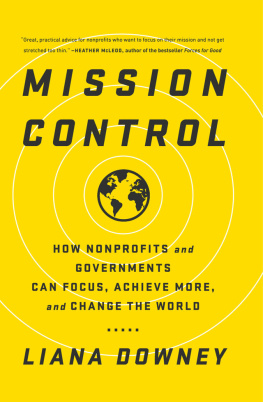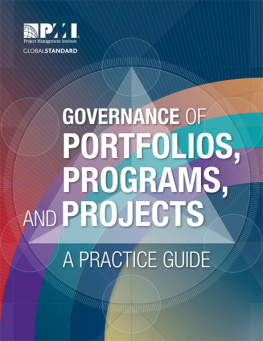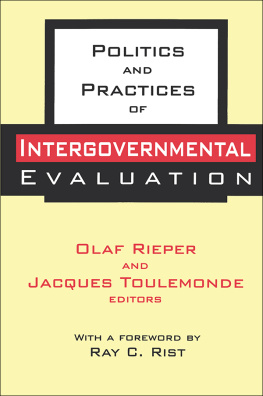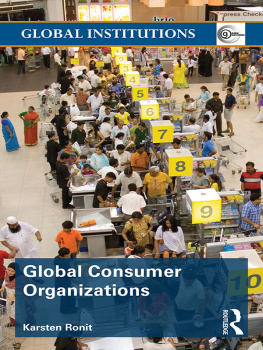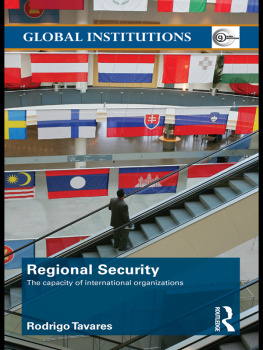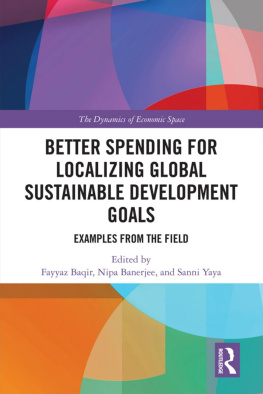First published 1989 by Westview Press, Inc.
Published 2019 by Routledge
52 Vanderbilt Avenue, New York, NY 10017
2 Park Square, Milton Park, Abingdon, Oxon OX14 4RN
Routledge is an imprint of the Taylor & Francis Group, an informa business
Copyright 1989 Taylor & Francis
All rights reserved. No part of this book may be reprinted or reproduced or utilised in any form or by any electronic, mechanical, or other means, now known or hereafter invented, including photocopying and recording, or in any information storage or retrieval system, without permission in writing from the publishers.
Notice:
Product or corporate names may be trademarks or registered trademarks, and are used only for identification and explanation without intent to infringe.
Library of Congress Cataloging-in-Publication Data
Anderson, Mary B., 1939
Rising from the ashes.
Includes bibliographies.
1. Disaster relief. I. Woodrow, Peter J. II. Title.
HV553.A58 19 89 363.3'48 89-14802
ISBN 13:978-0-367-28610-1 (hbk)
According to United Nations reports, over the past two decades natural disasters have killed some 3 million people, upset the lives of at least a further 800 million, and caused damage in excess of 23 billion US dollars. This book presents a fair and optimistic account of alternative responses to these disaster situations, which affect so many millions of people every year. The combination of analysis and guidelines it contains is in line with Unesco's own concerns in helping the most deprived people to help themselves in critical situations. That is why the Organization is co-publishing it.
The General Assembly of the United Nations has designated the 1990s as a decade in which the international community, under the auspices of the United Nations, will pay special attention to fostering international cooperation in the field of natural disaster reduction. The main objective of the International Decade for Natural Disaster Reduction is to promote disaster-preventive measures and post-disaster action. The General Assembly has expressly recognized the need for devising strategies for applying existing knowledge of disaster response, taking into account the cultural and economic diversity among nations. In this, as witnessed by the accounts given in this book of relevant experiences in Asia, Africa and Latin America, non-governmental organizations have an important contribution to make. This publication is thus a timely contribution, highlighting as it does the significant role of grassroots organizations in complementing that of governments and intergovernmental organizations in situations of disaster relief and illustrating how creative local initiatives can result in the mutual reinforcement of emergency relief and development programs.
Unesco will continue to work jointly with governments and with the non-governmental organizations, especially as this relates to development for and by the most vulnerable at critical times when natural or man-made disasters strike. This book provides a welcome addition to our limited knowledge of ways and means by which the international community can help mobilize peoples and societies to cope with disasters, to recover, and to develop their capacities to link short-term emergency assistance with long-term human and natural resource development.
Federico Mayor
Director-General of Unesco
Paris
Most books represent the involvement and ideas of more individuals than those whose names are listed as authors. This is abundantly true in this case. We are indebted to many people.
These people include the several dozen individuals who actively assisted us during each of thirty field visits and the staff people from the headquarters of over fifty NGOs in Europe and North America who collaborated on the project. Also included are the numerous individuals in research centers, international donor agencies, U.N. agencies, universities, and NGO consortia who participated in our explorations.
The number is so large that we tremble at the challenge of naming individuals, lest we leave out too many. Yet we must name some.
First, Dawn P. Trainor, who, with patience, humor and skill, supported, thought and worked with us when we were in the field or at home, and who, when all was said and done, got the manuscript into publishable form in spite of our frequent changes of mind and incessant editing.
Hussein M. Adam, Senior Project Associate, brought valuable ideas and his unique perspective to the entire project process. He also served as an informal ambassador and inveterate networker for the effort.
Our "core group," which included Peggy Antrobus, Tim Brodhead, Goran Hyden, Noel McGinn and Donald Schramm, provided days of enthusiastic grappling with issues and useful guidance to the project. Thus, they share with us responsibility for the framework and structure of both the research and this book.
The IRDP Advisory Panel, including representatives of each of the NGOs which participated in the project, was a rich source of experience and challenge. Their participation has been a crucial part of the process of developing the ideas in this book. While many people have been engaged with us from the NGOs, there are a few who served beyond the call of duty: Robert T. Snow of Oxfam America and later American Jewish World Service; Nancy Nicalo of Church World Service; Jacques Cuenod of ACORD and later ICVA; and Gunnar Hagman of the Henry-Dunant Institute.
Several others worked with us as researchers and writers in the process of developing the case histories: Mohamed Hassan Farah, Hady M. Ly, Roberto Muj Miculax, Mark Nieuwkerk, Ronald Parker, Ann K. Qualman, Donald Schramm, Robert Thomson, Daniel Torrealba, and Christopher M. Harris, who also worked with us as a Research Assistant. Additional research assistants, Arun Joshi, Thomas LeBlanc, and Julie Lineberger Cincotta, contributed a range of skills to the project. They organized our library, did independent research, wrote helpful "think" pieces, answered telephones, handled correspondence, and, in general, helped the office and project run.
The project would not have been possible without generous grants from several funding sources. This project intentionally sought broad support and was pleased to receive assistance from the following funders: the Canadian International Development Agency, the Exxon Education Foundation, the Ford Foundation, the Office of Foreign Disaster Assistance/U.S. Agency for International Development, PACT (Private Agencies Cooperating Together), the Royal Norwegian Ministry of Development Cooperation, the Swedish International Development Authority, UNICEF, and USA for Africa. Relief and development agencies which contributed with grants or in-kind assistance include: ACORD, Africare, American Friends Service Committee, CARE, Catholic Relief Services, Church World Service, Foster Parents Plan International, Oxfam America, Save the Children Federation, Swedish Red Cross, and World University Service Canada.




